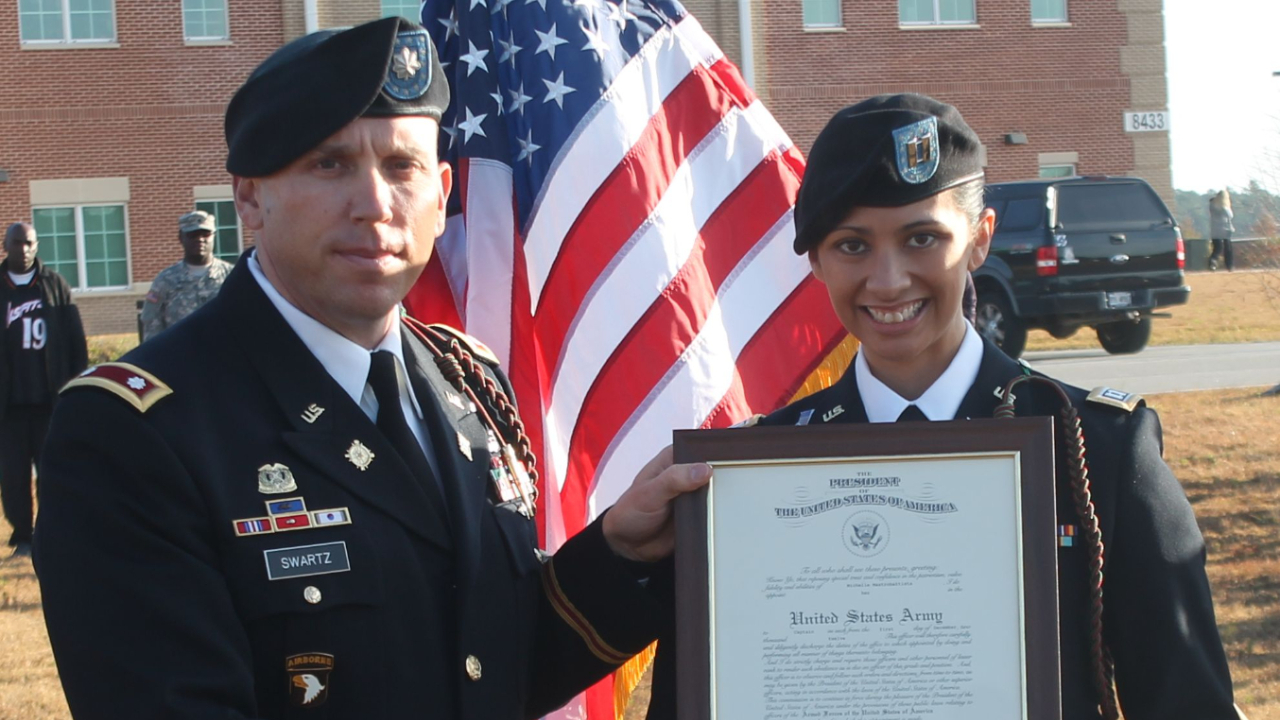Putting Others First

Since returning from Iraq, I had been re-assigned in the unit to serve as the operations planner when LTC Swartz took over. I had only exchanged a handful of words with him when he took command. Even then, I wasn’t a fan of small talk and there were only a few opportunities for professional exchanges. I really didn’t think Swartz knew much of who I was, but I didn’t really mind either. While building up the brand of our battalion, he had started to build a reputation for himself that signaled to me to stay out of his way. Swartz had high expectations of his leaders and he had been known to make some subordinate commanders cry. Other people came out of office had a glazed over look like they had just seen a ghost. Some of us called this getting, “Swartz-ed.” When he unexpectedly called me over from a Monday morning formation, I was less than thrilled to say the least.
Swartz had called over about five others to what looked like a half-time huddle. I approached consciously, apprehensively. Just like a coach, he clapped his hands and explained the situation in a serious and laser-focused manner.
“One of our soldiers needs us. A young soldier’s wife is coming off life-support. He has young children too. We need to figure out how to manage and help with this. This is not something we have dealt with. I need your help. This is going to happen fast.”
Everyone in the huddle was silent and somber. Swartz pointed at each one of us in the huddle and explained their specific task and why he selected them for that task.
“You, coordinate to get the chaplain linked with the soldier and family.”
“You, start working the soldier’s flight to his home of record for the burial.”
“You, figure out if the soldier wants an expedited transfer to another duty station.”
“Lieutenant Mastrobattista, I need you to figure out all the resources, community services and financial services that Fort Stewart can offer. The Army knows how to handle the death of a soldier, but not a dependent. This soldier is going to receive life insurance benefits, but that won’t be for some time. I need you to figure this out.” I stared at my boss with a dreary look as he explained my assignment. He must have felt my uneasiness with this task as he said, “I need you to do this….because I know you won’t fail.”
Besides being utterly shocked by the entire situation, I was wondering, and still sometimes wonder, what made my commander, who I seriously thought barely knew I existed, could make such a declaration. What had I ever done under his watch to make him believe I wouldn’t fail? Whether or not it was true was regardless. Our team had approximately three days to write the script on how to deal with the death of a non-military spouse on active duty.
I set out on my quest to gather as much information as possible. Besides being on a massive time crunch, I was pregnant, shuffling from building to building. I felt like a private investigator, gathering information that could not be extrapolated from the Internet. Every military entity had a set of rules it had to follow when providing services to non-military family members. One organization could partially pay to fly the body to its final burial location, but only during a certain time period. Another organization could cover some of the cost for the burial, but they required the death certificate. Each situation had its own set of caveats. I did my best to gather the information, organization and format it.
When I returned to post to report my findings, I had to wait a little bit. I could see Swartz looking more flustered than the composed coach I had seen earlier in the day.
“Did something change?” I asked one the staff officers walking by. I really couldn’t imagine how this situation could have gotten much worse.
“Oh, you don’t know? The boss canceled going with his family to Disney World this week. His wife and daughter went without him. I think he’s in the doghouse.”
After gingerly tip-toeing around the foyer for a few more minutes, everyone waiting to report entered the conference room and provided their updates. More than the dire situation manifested itself across Swartz’s face, clearly a heavy heart was weighing him down. The difficult decision to personally assist a soldier with a dying spouse compounded by putting his own family in the back seat is something I’ve always respected and admired. The discipline and selfless service he demonstrated for someone else’s benefit has always been a point of reflection for me as I’ve been faced with making difficult decisions, especially when challenged with trying to balance professional and family obligations. Staff would ask Swartz now and again if he was in better favor with his family.
For a while, he would only offer a half-hearted smirk suggesting that probably not. Difficult decision-making is not always an innate behavior. Often times, the skill must be learned. Discipline in Latin means “to learn.” As a leader, the concept of discipline should not automatically translate to punishment. In addition to learning an organization’s team, culture, and motivation, a leader must learn him or herself. Being aware of one’s own physical and emotional contribution is critical to invoking change.
Swartz did manifest change. Change for the soldier in a deep time of loss. Change in the way we thought about taking care of each other. Change in the way we prioritize what’s important in life. Change is not easy. It is incumbent on the leader to manage change. It is not always easy.
Whether you're new to the military or have been in for ten years....
These 10 money tips will help make all the difference in you Living Your Best Military Life!

